Welcome to the Club: Russia Joins the WTO
For motives that are not entirely clear, Vladimir Putin's Russia has overcome stiff opposition at home and in the United States to take its place in the World Trade Organization.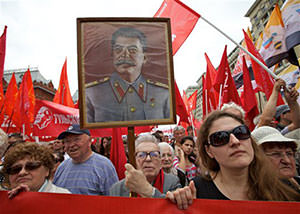
After almost two decades of negotiations, Russia finally joined the World Trade Organization (WTO) in December as its 156th member and ratified the protocol in July. It was just in the nick of time: The deadline for ratification ran out five days later. Domestic opposition in Russia has been and remains strong. At the same time, Russia’s ascension has become mired in U.S. pre-election battles between Republicans and the Democrats.
Many of the debates surrounding Russia’s membership in the WTO are a Cold War legacy. Mitt Romney’s remarks on Russia illustrate the extent to which Republicans in particular still see Russia as an enemy and U.S. resistance contributed to the extremely long application process.
Even now that Russia is in, U.S. trade restrictions remain in place. Congress has yet to repeal the Jackson-Vanik amendment, a bizarre relic from 1974. After the Soviet Union imposed emigration restrictions on its Jewish population, Congress implemented sanctions against the USSR. Even though all post-Cold War U.S. presidents have waived the provisions of the amendment and Russia has not kept Jews from emigrating for more than 20 years, Jackson-Vanik remains in place. It prevents Russia from attaining permanent normal trade relation status with the U.S. Now that Russia is in the WTO, this means that higher tariffs apply to imports and exports between the U.S. and Russia. This has caused widespread criticism, including from U.S. exporters. Caterpillar, for instance, sold $2 billion worth of machinery to Russia over the past five years, mainly to Russia’s mining companies, and worries about losing its competitive edge to European and Asian companies.
Nonetheless, Republican opposition has so far prevented the repeal of the Jackson-Vanik amendment, which is also favored by the Obama administration. Lawmakers from both parties have made the repeal dependent on passing the new Sergei Magnitsky Rule of Law Accountability Act, named after the lawyer who died in a Russian prison because of medical neglect in 2009. The bill would allow for sanctions against Russian officials involved in either corruption or human rights violations.
The connection of the two bills has complicated the normalization of trade relations further and led to allegations of American Russophobia from the Russian government. Although no one denies that human rights and corruption issues need to be tackled, it is more than doubtful whether this should be done through a trade bill. The U.S. does not have comparable laws in force against other trade partners with shoddy human rights records, such as China. It’s not clear when Congress will pass any legislation on Russia. The decision on this politically sensitive issue has been postponed until November — after the elections.
Proponents of Russia’s ascension to the WTO also continue to face serious opposition in Russia itself. The country’s agricultural sector, and auto and machine industries are, for the most part, in no position to compete in global markets. The general reduction of import tariffs from 15 percent to 7 percent would leave these industries more vulnerable to international competition. The Russian population will possibly face additional hardships due to WTO membership. The World Bank expects significant short-term costs for Russian businesses and households while they adapt to the transformation. In the medium term, however, it predicts an increase of Russia’s gross domestic product by 3 percent annually.
Naturally, this “adaptation process” carries significant political risks. In the Russian State Duma, Putin’s party of power, United Russia, could not count on the support of the other parties. Communists, Just Russia and Liberal Democrats, for the most part a docile opposition, voted against ratification of the treaty. The Communists even called the constitutionality of the ratification into question. Their suit was, however, rejected by Russia’s supreme court. And while United Russia’s absolute majority of 238 votes sufficed to push the ratification through, there was little excitement for WTO membership among Russia’s ruling party. Russia’s minister of economic development and leading proponent of WTO membership, Andrei Belousov, spoke about the long and arduous negotiation process and expressed his hope that investors would find a more stable legal framework for trade with Russia. The government hopes that increased foreign investment in Russia will aid its modernization project.
The opposition fears that state-run and private Russian companies will lose their control over the country’s markets. Furthermore, they doubt whether the government’s generous anti-crisis measures and investments into infrastructure will continue to be possible in the future. Many in Russia do not believe the government’s (and neoliberal economists’) promises for increased wealth for all. Vladimir Zhirinovsky, the controversial leader of the Liberal Democrats, put it most succinctly: “I hate you because you are forcing a fairy tale onto the country.”
For Vladimir Putin, ascension to the WTO thus presents a balancing act between different factions of the business elite, which is partially interested in better international trade relations and partially fears the implications of liberalization. Moreover, much of Putin’s electorate fears job loss. Many of the 460 so-called monogorods (monocities), in which one enterprise controls practically all economic activity, are considered particularly uncompetitive. Considering that Putin has increasingly been catering to a conservative electorate since his latest re-election he cannot afford to ignore these groups’ concerns.He has already acted to allay their fears. Shortly after Russia’s ascension, the government introduced new “recycling taxes” on cars and agricultural machines. These measures will tax imported cars and machines more heavily than Russian models, thus giving the Russian industries a significant advantage on the domestic market. One of the bill’s authors, first deputy chairman of the State Duma’s committee for industry, Vladimir Gutenyov, has acknowledged that the tax’s main purpose is to protect Russian industries against competition from abroad: “The domestic automobile producers will enjoy price preferences that will ensure their survival in the WTO and further development and ease social problems at factories and in regions.”
Some critical observers, like the Echo Moscow radio journalist Mikhail Leontyev, wonder why Russia joined the WTO at all, given the government’s very limited interest in free trade. Leontyev describes the government elite’s attitude as follows: “150 countries are members, and Russia is to stand aside?” Its motivation, then, would lie more in joining the “club” of the world’s economies, rather than a fundamental support for the WTO’s free trade policies.
According to Leontyev, the Russian government aims at pursuing a more “competent protectionism” through its membership.
Putin’s remarks during the recent APEC meeting in Vladivostok seem to support this claim. He spoke out against protectionism in principle but also demanded the creation of clear rules for its application within the WTO framework to avoid trade wars. Considering the WTO’s resistance to reform in the past decade, it is unlikely that Putin’s suggestions will have much of an impact — particularly since they deal with one of the most politically sensitive issues in global trade. Considering Russia’s difficult and politicized ascension process, it is safe to say that the WTO courts dealing with international trade conflicts will not run out of work in the near future.
Ivo Mijnssen is a Russia scholar based at the University of Basel, Switzerland and a frequent contributor to Truthdig.
Your support matters…Independent journalism is under threat and overshadowed by heavily funded mainstream media.
You can help level the playing field. Become a member.
Your tax-deductible contribution keeps us digging beneath the headlines to give you thought-provoking, investigative reporting and analysis that unearths what's really happening- without compromise.
Give today to support our courageous, independent journalists.

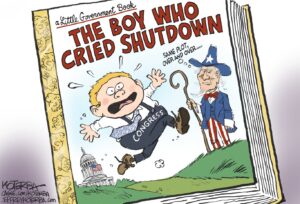
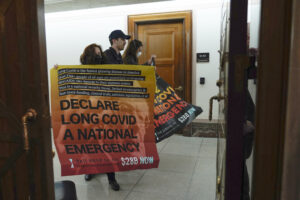
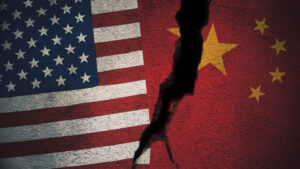
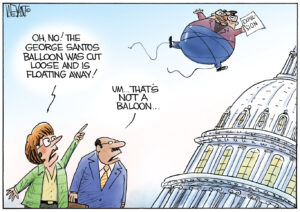
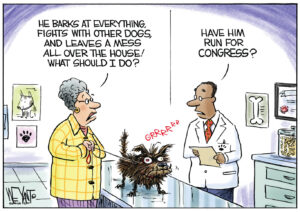
You need to be a supporter to comment.
There are currently no responses to this article.
Be the first to respond.